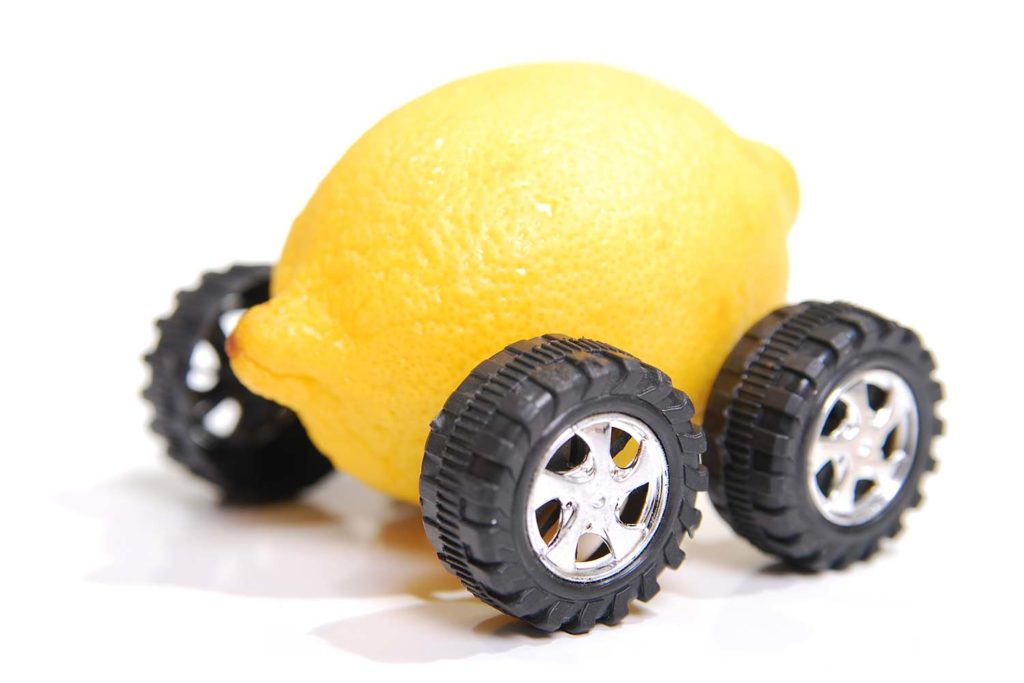You Might be Able to Recover Money Thanks to a Lemon Law
Many people have asked the question, “What can I do if my car is a lemon?” No, your car is not a fruit, but its lack of reliability may leave a sour taste in your mouth. If your car is a lemon or has a seemingly unfixable problem, you just might be able to get your money back. In order to do that, you’ll need some legal guidance. This is where our expert legal team at Wilson C. Pasley, PLC, in Roanoke, VA, comes in. Read this month’s blog for some key information concerning lemon car laws in Virginia.
Where Does “Driving a Lemon” Come From?
Defective cars were known as “lemons’ by most people in 1960. An ad from Volkswagen forever added it to our vocabulary. The ad featured a Volkswagen Beetle with the word “lemon” below the car. Beetles in the 1960s were very basic cars. Some didn’t even have a fuel gauge. While they were easy to fix, these cars did tend to break down fairly often. Today, “lemons” are new cars that have operational problems. In most states, for a car to qualify as a “lemon,” the car must have a significant defect covered by the warranty. It also must have occurred within a specified period, either in time or miles, from when you purchased the vehicle. It must still not be fixable after a reasonable number of attempts to do so, too.
Understanding Lemon Laws in the Commonwealth of Virginia
Part of the Virginia “Lemon” Law (Virginia Motor Vehicle Warranty Enforcement Act of the Virginia Codes reads: “The General Assembly recognizes that a motor vehicle is a major consumer purchase, and there is no doubt that a defective motor vehicle creates a hardship for the consumer. It is the intent of the General Assembly that a good faith motor vehicle warranty complaint by a consumer should be resolved by the manufacturer, or its agent, within a specified period of time…” In most instances, to qualify under a “lemon” law, your vehicle must only have an unreasonable repair history under the warranty, including three to four repair attempts for the same problem, six repairs total on the vehicle, or 30 days out of service by reason of repair.
A faulty engine, transmission, brake system, or suspension system are most often covered by “lemon” laws. If the defect is a matter of safety in the steering or braking system, it would have to remain unfixed after only one attempt to qualify for the “lemon” law. Another qualifier is if the vehicle has been in the shop for repairs 30 days or longer in a one-year period. In this instance, it could be for multiple defects. Visit the virginia.gov website for more information about “lemon” laws.
How to Protect Yourself from Buying a “Lemon”
Doing your own research and asking friends or families about their car can help you avoid “lemon” makes and models. Make sure that your car comes with a warranty. All new vehicles should come with a warranty. If you’re considering a used vehicle, you can always ask for a warranty. Some used car dealers will be happy to add one at an additional cost. A warranty could save you money down the road. Keep record of all of your vehicle’s repairs and any other paperwork that may contain information about the vehicle’s maintenance.
For more information on “lemons,” give Wilson C. Pasley, PLC, a call at (540) 266-1545. Like us on Facebook to stay up-to-date with the latest news and information. We are happy to answer the question, “What can I do if my car is a lemon?”


